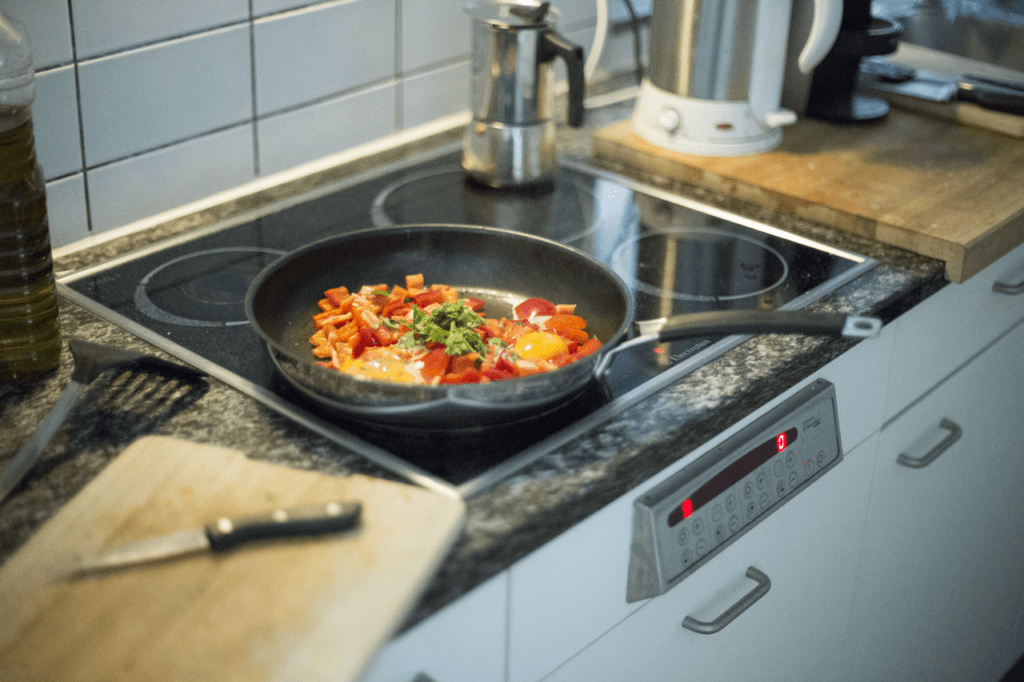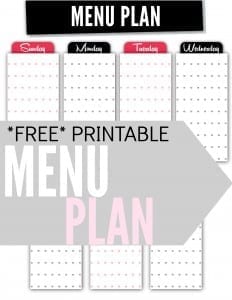 According to Value Penguin, food costs make up 30% – 40% of the average American budget. That amount probably increases the more you dine out at restaurants and order takeout. It’s no secret that dining out is expensive. Buying lunch daily during a 5-day work period can easily add up to over $1,000 for the year.
According to Value Penguin, food costs make up 30% – 40% of the average American budget. That amount probably increases the more you dine out at restaurants and order takeout. It’s no secret that dining out is expensive. Buying lunch daily during a 5-day work period can easily add up to over $1,000 for the year.
Whenever someone wants to reduce their spending and get their budget under control, I always suggest that they cut unnecessary expenses like dining out. When my family and I stopped dining out as much, we started saving a ton of money. Suddenly, I was able to pay off my debt faster, boost my emergency savings, and do so much more without even having to sacrifice delicious food.
I’m a foodie so I love food and trying out new dishes. I also love the social aspect of dining out. However, eating more meals at home is a habit and adjustment you can slowly ease into. It’s not that hard once you fully commit and still incorporate the food you love. Here are tricks to help you get started so you can save so much more money.
1. Set a Fun Goal
When I started dining out less and preparing more meals at home, my main goal was to save more money so I could pay off my student loans and car loan. This goal wasn’t particularly fun, but it helped me stay motivated. Now, my goal is homeownership. It’s Friday night as I’m writing this and I felt the urge to order dinner but after thinking about my goal of buying my first home next year, I happily cooked myself some fried rice with mixed vegetables for dinner and it was delicious and filling.
I often think about being able to reach my down payment goal and settle into my new home with my family and decorate it.
If you want to start eating more home cooked meals, you can set a goal behind your reasoning that really inspires and motivates you. Perhaps it can be a small trip you’d like to take or having a debt-free Christmas
2. Learn How to Cook Better
Improving your cooking skills is key if you want to eat more meals at home. Too many times I hear that people just order food from restaurants because they feel they suck at cooking. I don’t mind cooking, but I wasn’t automatically good at it.
I started improving my skills by looking up recipes and just experimenting in the kitchen. My husband and I still joke about the dry and tasteless turkey burgers I made us when we first started dating. After some trial and error, my cooking has improved a lot since then but it’s still not chef worthy. Just a few weeks ago, I finally realized that I’d been overcooking pasta for years now. I fixed it, and now my family loves spaghetti again.
I found so much relief and valuable tips just by searching for answers to my questions online, reading reviews, and even watching cooking shows. As an added bonus, when you improve your cooking skills, you’ll feel more confident knowing exactly what’s in your food
3. Simplify Your Meals
You don’t have to put a ton of time and energy into cooking if you don’t have a ton of resources. Make it a priority to simplify your meals so you can prepare them quickly and without much effort. This doesn’t mean you have to stick to crappy processed foods and high-sodium pre-made dinners.
You can still cook whole and fresh healthy food but limit your ingredients. Stick to easy dishes with 2-3 ingredients that you can prepare in 10-15 minutes. Some of my favorite options for simple meals include salmon and salad, avocado toast for breakfast with a side of fruit (so much cheaper to make at home), tacos, chicken lettuce wraps, and beef and broccoli.
Adding a few simple meals into the mix will eliminate some of the stress that surrounds having to cook most of your meals at home.
4. Cook in Batches to Prepare
Don’t see yourself cooking every night? You really don’t have to. If you’re busy or just not a fan of cooking, focus on preparing large meals in batches so you can have leftovers for a few days. Most people who meal prep and batch cook pick one day out of the week do the bulk of their cooking.
Then, during the busy week, they don’t need to worry about food. You can prep breakfast and lunch items and place them in containers for each day. For dinner you can prepare food in huge batches and either freeze it or store it in the fridge for a few days.
Consider getting slow cookers if you don’t already have one so you can make soups, chicken, mac and cheese, beans and rice, and even lasagna.
Batch cooking really keeps my family going because our weeks are super busy and we thrive on leftovers. In the summer, my husband grills food in huge batches on his off day so he may make chicken wings, sausage, burgers etc. for the new few days.
5. Plan For ‘Lazy’ Nights
Everyone has those nights when they just don’t feel like doing anything when they get home let along cook. Perhaps you had a bad day or are just flat out exhausted. Instead of driving to the nearest fast food restaurant, go home and warm up one of your ‘lazy’ meals.
A lazy meal is a meal that’s extremely quick and easy to make. It probably won’t be the healthiest option, but it will be much cheaper than buying mediocre restaurant food just to satisfy your stomach.
Some of our favorite cheap lazy meals include frozen pizza, noodle bowls, frozen fish (because fish cooks super quickly), and any frozen batch meals we happen to have.
You can even invite friends over for frozen pizza and homemade wings or host a potluck so you won’t have to do much cooking and you can focus on enjoying your friends and family.

6. Switch Up Your Lunches
Some people can eat the exact same thing for lunch for the entire year and never grow tired of it. Most of us (self-included) are not like that. My family gets tired of food quickly and we love to switch up our meals including lunches.
Back when I worked in an office, it was so tempting to join everyone else and order food every day. After a while, the money I was spending added up and I got more serious about my financial goals. Yet and still, I didn’t feel like bringing a dry sandwich to work every day.
I started including lunch foods into my regular grocery budget. Then I prepared my meals in batches just like what we were doing with dinner. I brought soups, deli wraps, pasta, and so on. I also brought lots of leftovers if we had them. In addition to switching up your lunch foods, don’t forget about snacks if you’re going to be away from home for a while. Foods like bananas, mixed nuts, popcorn, cheese, yogurt, veggies and dip, and seasonal fruit won’t cost much at all.
Plus, it will feel great to have food to cover all your meals throughout the day after just one shopping trip.
Dining out doesn’t have to be the norm especially if you can’t afford it or want to do other things with your money. Keep these 6 tricks in mind to get on the right track then before you know it, it will become second nature and you’ll be happily eating at home and no longer envying your friends’ restaurant trips.
How often do you eat at home? Do you ever try any of these things?




These are fantastic tips! I bring leftovers to work most days for lunch. I need to stock up on quick and easy things to take for those days when we don’t have leftovers. I always forget about doing that. I also don’t plan very well for lazy days but me and my boyfriend will take turns making dinner and he knows when I am definitely not in the mood to cook.
I wind up eating leftovers for lunch too sometimes. Lasy days are usually Fridays or Saturdays in my household after my husband and I are beat from the week.
We stock up on items that will last a long time that can serve as the basis for a variety of different meals. This gives us better chances of increasing our chances of having something desirable when we aren’t sure of what we’re having.
Same here. We always have things like beans, rice, and frozen veggies on hand.
I agree with all 6 points.
It’s crazy to think a minimum of almost a third of our income goes straight to our bellies, but it’s definitely food for thought.
My husband and I went from eating out (one pizza from Papa John’s) every week to now only eating out once a month. Hopefully we can reduce it to once every other month.